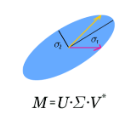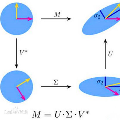Computation of a tensor singular value decomposition (t-SVD) with a few passes over the underlying data tensor is crucial in using modern computer architectures, where the main concern is the communication cost. The current subspace randomized algorithms for computation of the t-SVD, need 2q + 2 passes over the data tensor where q is a non-negative integer number (power iteration parameter). In this paper, we propose an efficient and flexible randomized algorithm that works for any number of passes q, not necessarily being an even number. The flexibility of the proposed algorithm in using less passes naturally leads to lower computational and communication costs. This benefit makes it applicable especially when the data tensors is large or multiple tensor decompositions are required in our task. The proposed algorithm is a generalization of the methods developed for matrices to tensors. The expected/average error bound of the proposed algorithm is derived. Several numerical experiments on random and real-time datasets are conducted and the proposed algorithm is compared with some baseline algorithms. The results confirmed that the proposed algorithm is efficient, applicable and can provide better performance than the existing algorithms. We also use our proposed method to develop a fast algorithm for the tensor completion problem.
翻译:在使用现代计算机结构时,主要关注的是通信成本。当前用于计算 t- SVD 的子空间随机随机算法(t- SVD) 需要 2q + 2 将 q 转换到数据 Exor, q 是非负性的整数(电动迭代参数) 。在本文中,我们建议一种高效和灵活的随机算法,用于任何多个传票,不一定是偶数。提议的算法在使用较少传票自然导致降低计算和通信成本方面的灵活性。这一好处使得它特别适用于我们的任务中需要数据发声器大或多发声分解的次空间随机算法。提议的算法是用于向发声器矩阵开发的方法的概括性化。拟议算法的预期/平均误差是必然的。在随机和实时数据集上进行了若干次数字实验,而拟议的算法则与一些基线算法进行了比较。结果证实,拟议的算法效率高、适用性、而且比现有算法的快速使用率更好。我们提出的算法也可以提供比现有的快速完成方法。



